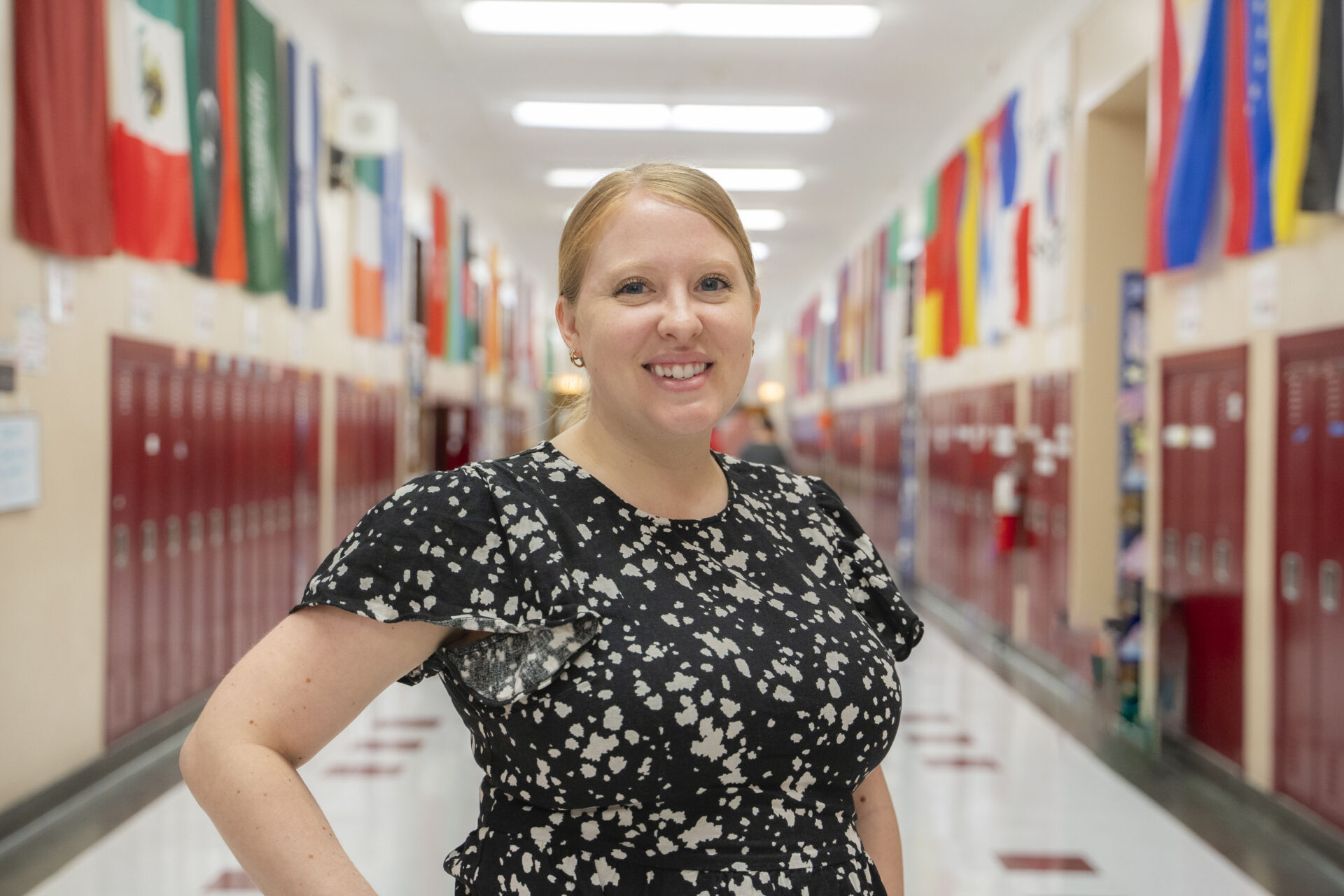“What do the kids think?” This simple question guides Assistant Principal Kathleen Hurley at Peterson Elementary in Chicago’s North Park neighborhood. She believes that student ideas and needs should drive school decisions — especially when it comes to creating a supportive, inclusive learning environment.
Growing up in a rural southeast Ohio community, Kathleen was raised by two lifelong educators. “School just feels like home to me,” she shares. Somewhat surprisingly, though, her plan in college wasn’t to go into teaching. She studied food and nutrition science and hoped to work on improving school lunch programs through the U.S. Department of Agriculture. But a desire to better understand schools from the inside led her to join Teach For America. She listed Washington, D.C., as her top city, but was placed in Chicago — at Peterson Elementary. That was nearly 11 years ago, and she has never left.
From her early days teaching STEM — at the time a K-8 program with no curriculum, which she helped lift off the ground — to her current role as assistant principal, Kathleen has always considered Peterson more than just her school — it is her professional home. “Peterson is the most special school in all of [Chicago Public Schools],” she says. “We have 43 different languages and kids from all over the world. If we can all learn in one place and draw from each other’s strengths and experiences, there is so much hope for the future.”
Kathleen’s work centers on students’ voices. Her belief in their agency is real, but beyond including them in decisions, she equips students to lead. She is currently collaborating with a group of sixth and seventh graders on an attendance leadership team. The students are conducting empathy interviews with peers who are chronically absent, aiming to understand barriers to attendance and to design solutions.

Assistant Principal Kathleen Hurley at Peterson Elementary, 2025.
This student-centered approach pervades Peterson, too. “We have teachers committed to making student voice committees happen and leading kids through the design process to figure out what they want to do,” Kathleen says. One standout example is the student-created RISE framework, which defines behavioral norms in shared spaces. RISE stands for respectful, intelligent, safe, and empathetic. After students expressed confusion about expectations, Kathleen and the school’s Culture and Climate Team empowered them to research, design, and roll out the new norms. They surveyed peers, collected feedback, and created hallway posters — even organizing pep rallies to build excitement.
Kathleen has accomplished a lot in her 11 years at Peterson, and she credits much of her growth to working alongside Peterson’s principal, Yalil Nieves. “She’s such a phenomenal mentor,” Kathleen says. “She lets me learn right alongside her.” At the same time, Kathleen is trying to overcome her humility as she prepares to take her leadership to the next level. “Something I’m working on as I prepare for the principal eligibility process is saying, ‘I did this,’ instead of just crediting the team or students,” she says.
Her years of hard work, along with Yalil’s mentorship and participation in The Fund’s 2024-25 Leadership Bridge program, is preparing Kathleen to lead her own school, though she’s clear that her heart is at Peterson.
Regardless of her future, Kathleen’s leadership philosophy will remain rooted in a deep belief in students — their voices, their power, and their potential. “I believe that has to drive everything we do,” she says. At Peterson, it does.